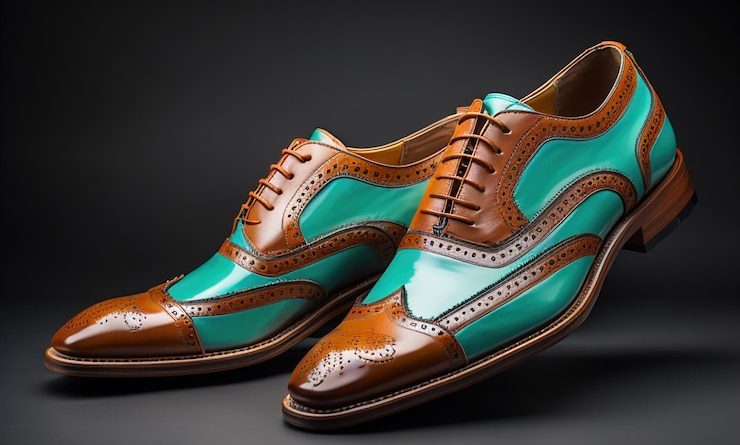The Flourishing Shoes in Bangladesh
Bangladesh, a country known for its vibrant culture and burgeoning economy, has rapidly emerged as a significant player in the global footwear industry. Over the past decade, the footwear sector in Bangladesh has experienced exponential growth, establishing itself as a key exporter of shoes to various parts of the world. This article delves into the dynamic landscape of the Shoes in Bangladesh, exploring its development, major players, and the factors contributing to its success.
Historical Context and Growth Trajectory
The footwear industry in Bangladesh has roots dating back to the early 1970s. Initially, it operated on a small scale, catering primarily to the domestic market. However, the industry began to gain momentum in the late 1990s, driven by the increasing demand for affordable, high-quality shoes both locally and internationally. The turn of the millennium marked a significant transformation, with Bangladesh leveraging its competitive advantages—such as low labor costs and a large workforce—to become a global footwear manufacturing hub.
Key Players in the Industry
Several companies have been instrumental in propelling the Bangladeshi footwear industry to its current stature. Apex Footwear Limited, one of the largest shoe manufacturers in the country, has been at the forefront, exporting its products to over 50 countries. Another notable player is Bay Footwear, known for its extensive range of products and robust international presence. Additionally, companies like Fortuna, Jennys Shoes, and Leatherex have also made significant contributions, enhancing the diversity and quality of footwear produced in Bangladesh.
Diverse Product Range
Shoes in Bangladesh is characterized by a wide array of products, catering to different segments of the market. This includes:
- Casual Footwear: Comprising sneakers, loafers, and sandals, casual footwear forms a significant part of the production. These shoes are known for their comfort, durability, and affordability, making them popular in both domestic and international markets.
- Formal Footwear: Bangladesh produces a variety of formal shoes, including dress shoes, oxfords, and brogues. These are crafted with precision and high-quality materials, appealing to professionals and fashion-conscious consumers worldwide.
- Athletic Footwear: The demand for sports and athletic shoes has surged, leading to increased production of running shoes, trainers, and specialized sports footwear. Brands in Bangladesh are focusing on incorporating advanced technologies to enhance performance and comfort.
- Children’s Footwear: This segment includes a range of shoes designed for kids, ensuring safety, comfort, and style. The vibrant designs and durability make Bangladeshi children’s footwear a preferred choice for many parents.
- Specialized Footwear: This category includes safety shoes, medical shoes, and other specialized footwear designed for specific needs. These products meet international standards and are exported to various countries, showcasing the versatility of Bangladeshi manufacturers.
Quality and Innovation
Bangladeshi footwear manufacturers have made significant strides in improving the quality and design of their products. Investment in modern machinery, adoption of advanced manufacturing techniques, and a focus on research and development have played crucial roles. Companies are increasingly prioritizing sustainability by using eco-friendly materials and adhering to international environmental standards. This commitment to quality and innovation has enabled Bangladeshi shoes to compete effectively in global markets.
Economic Impact and Employment
The footwear industry is a vital component of Bangladesh’s economy. It contributes significantly to the country’s GDP and export earnings. According to recent data, the footwear sector employs over half a million people, providing livelihoods to a substantial portion of the population. The industry’s growth has also spurred the development of ancillary industries, such as leather processing, packaging, and logistics, further boosting economic activity.
Challenges and Opportunities
While the Bangladeshi footwear industry has achieved remarkable success, it faces several challenges. These include:
- Infrastructure Development: Inadequate infrastructure, including transportation and energy supply, can hinder production and increase costs. Addressing these issues is crucial for sustaining growth.
- Skilled Workforce: There is a need for continuous training and development programs to enhance the skills of the workforce. This will ensure that the industry remains competitive and can meet the evolving demands of the global market.
- Compliance and Standards: Meeting international compliance standards, such as labor rights and environmental regulations, is essential. Failure to comply can result in trade restrictions and loss of market access.
Despite these challenges, the industry also presents numerous opportunities. The increasing global demand for sustainable and ethically produced footwear provides a niche that Bangladeshi manufacturers can exploit. Additionally, expanding into new markets and diversifying product offerings can drive further growth.
The Role of ExportHub
ExportHub has played a pivotal role in connecting Bangladeshi footwear manufacturers with international buyers. As a leading B2B marketplace, ExportHub facilitates trade by providing a platform for suppliers and buyers to interact, negotiate, and establish long-term business relationships. The platform offers various services, including product listings, trade show participation, and buyer-seller matching, making it easier for Bangladeshi companies to showcase their products to a global audience.
Future Prospects
Shoes in Bangladesh looks promising. With continued investment in technology, focus on sustainability, and efforts to improve infrastructure, the industry is poised for sustained growth. Additionally, government support in the form of favorable policies and incentives can further enhance the sector’s competitiveness. The potential for innovation and expansion into new product lines and markets presents exciting opportunities for Bangladeshi footwear manufacturers.
In conclusion, the footwear industry in Bangladesh has come a long way, transforming from a modest domestic sector to a thriving global player. The combination of quality, affordability, and innovation has made Bangladeshi shoes a preferred choice for consumers worldwide. As the industry continues to evolve, it holds immense potential for driving economic growth and creating employment opportunities, cementing Bangladesh’s position as a key player in the global footwear market. Through platforms like ExportHub, Bangladeshi manufacturers can continue to expand their reach, contributing to the country’s prosperity and development.

